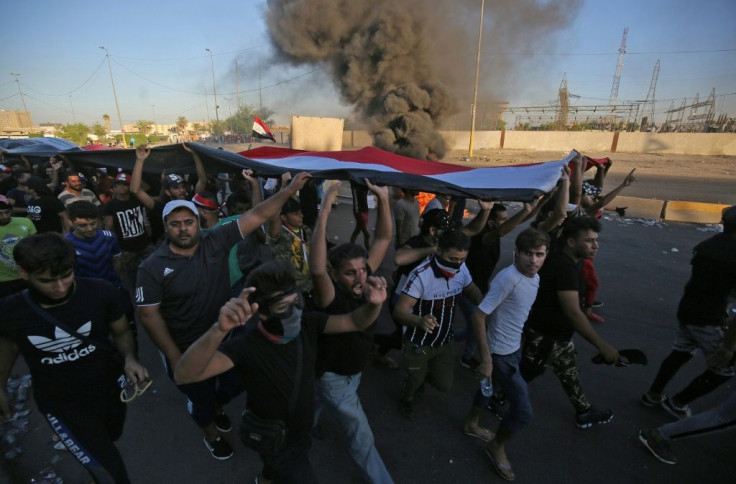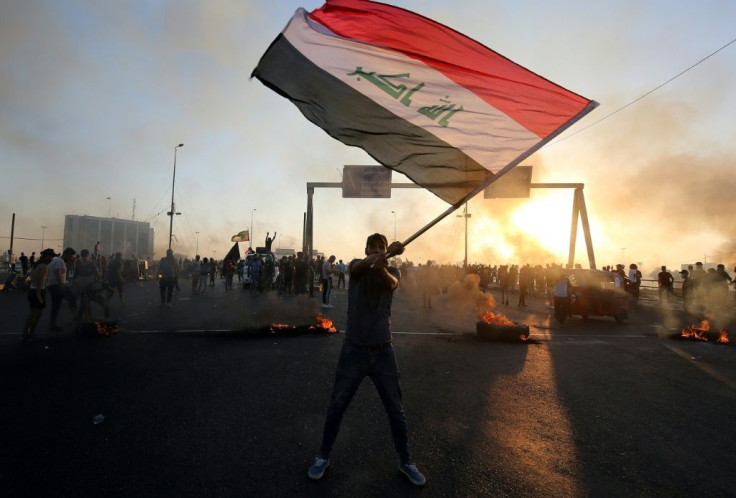157 Dead In Iraq Protests: New Official Toll

The death toll from week-long anti-government protests that erupted in Baghdad and southern Iraq at the start of October totalled 157, an official inquiry announced Tuesday, ahead of further demonstrations.
It also said commanders from across the security forces had been dismissed in the wake of the violence, including from the army, police, anti-terror, anti-riot, anti-crime, intelligence and national security units.
The United Nations Assistance Mission for Iraq, in a report of its own, said that "serious human rights violations and abuses have been committed" and excessive force used against demonstrators.
"Attacks against media outlets and the blocking of internet/social media seem to have been used as tools to deter participation in the demonstrations as well as to repress reporting and activism," the UN mission said.
UNAMI called for "concrete steps to prevent violence and enable future peaceful demonstrations" and stressed "the critical importance of seeking accountability for perpetrators".
The official inquiry found that 111 of the dead, nearly all of them protesters, had been killed in Baghdad.
Around 70 percent of the deaths were caused by bullet wounds "to the head or chest", according to the findings, published as Iraq braces for fresh protests on Friday.
The official toll included 149 civilians and eight members of the security forces killed between October 1 and 6, during protests in the capital and across mainly Shiite southern provinces.
Four security personnel were killed in Baghdad, where clashes initially centred around the iconic Tahrir Square after protesters rallied to demand jobs, services and an end to corruption.
Later unrest in the capital sparked a bloody night of violence in the Shiite stronghold of Sadr City.

Authorities formed a commission of inquiry to investigate, after initially only acknowledging security forces used excessive force in a few instances.
In its report, the inquiry blamed some deaths on security forces, but also mentioned other "shooters", without identifying them.
From the start, authorities accused "unidentified snipers" posted on rooftops overlooking protesters and security forces for deaths.
'Disobedience' by security forces
The commanders dismissed in the aftermath of the deadly clashes were stationed in Baghdad and six provinces south of the capital.
Their dismissal must be confirmed by Prime Minister Adel Abdel Mahdi, who faces public pressure ahead of the first anniversary of his cabinet on Friday.
Human rights groups and Iraqis able to post on social media, inaccessible without a virtual private network (VPN), accuse security forces of responsibility for protester deaths: either by firing themselves or by failing to protect demonstrators from snipers.
Former premier Haider al-Abadi, now in opposition, condemned the findings of the official inquiry.
"This report points to disobedience by military and security officials who decided to open fire contrary to their orders," he said in a statement. "But it does not explain how the 'disobedience' lasted several days without the higher levels of leadership taking control."
Protests shook Iraq for six days from October 1, with young Iraqis initially denouncing corruption and demanding jobs and services before calling for the downfall of the government.
Parliament, which has been deeply divided over the protest movement, is to meet Saturday to discuss the demonstrators' demands.
© Copyright AFP 2024. All rights reserved.





















